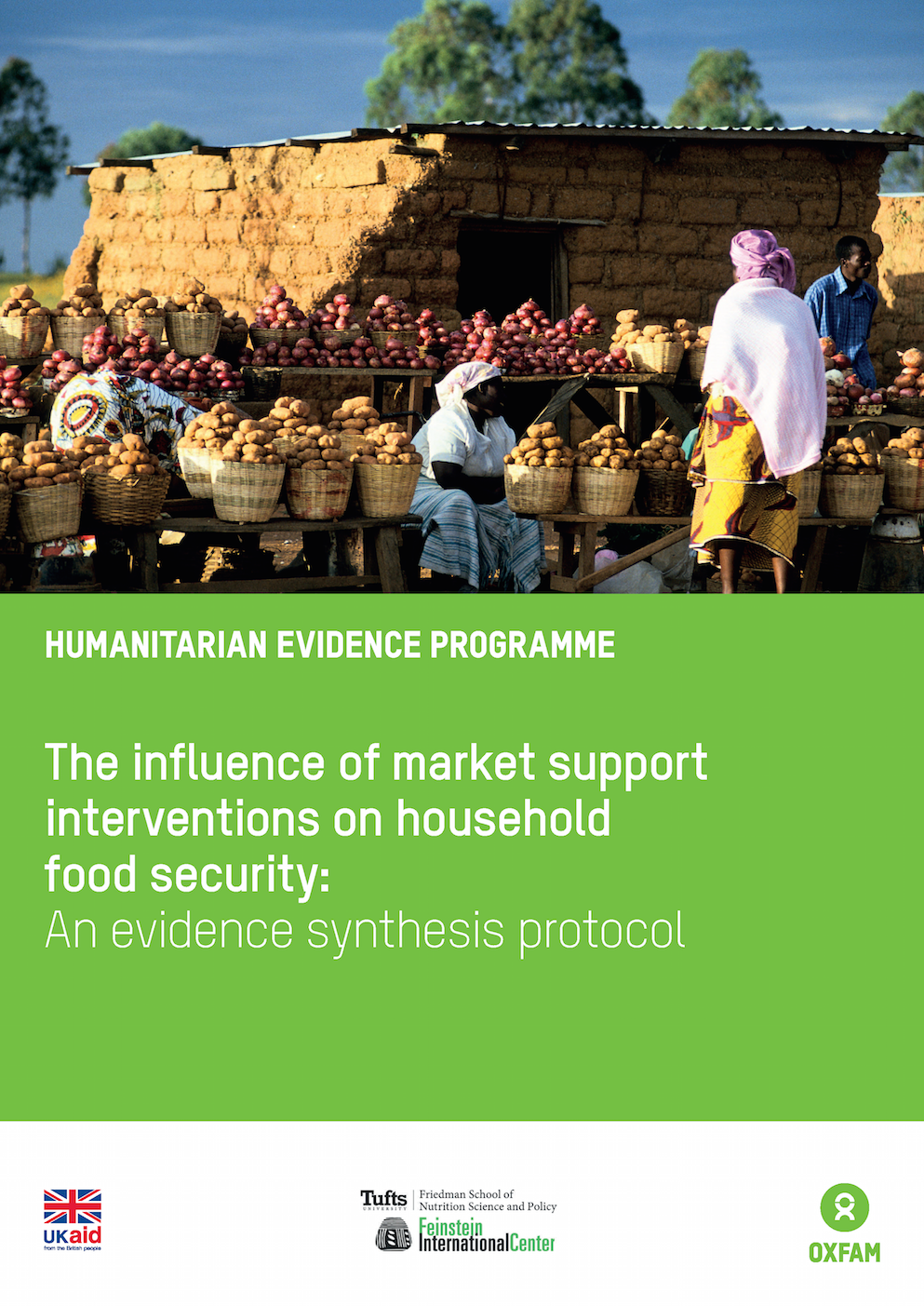This protocol outlines the proposed research questions and methodology for an evidence synthesis on the influence of market support interventions on household food security in humanitarian crises. Research questions identified include: What are the project parameters that drive the inclusion and exclusion of market support interventions in humanitarian crises? What are the potential contextual and institutional barriers to/enablers of market support interventions? Which market support intervention effects are measured? What is the influence of interventions supporting traders on household food security in humanitarian crises? What is the influence of interventions supporting market services and infrastructures on household food security in humanitarian crises? Who are the main actors targeted for market support activities? What are the gaps in research evidence about market support approaches?
The synthesis was commissioned by the Humanitarian Evidence Program, a UK Aid-funded partnership between Oxfam and Feinstein International Center (FIC) at the Friedman School of Nutrition at Tufts University. The Humanitarian Evidence Program aims to distil and communicate existing evidence in the humanitarian sector as a contribution towards efforts to improve humanitarian policy and practice.







